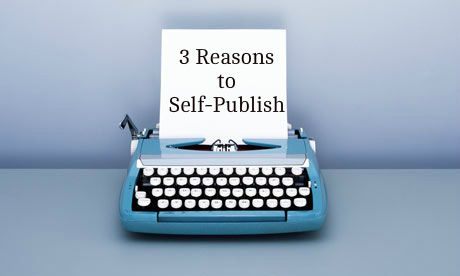3 Reasons to Self-Publish Your Book
- Erin Ann McBride
- Feb 15, 2016
- 2 min read

Commercial publishing is the traditional form of book publication. An author writes a book, creates a pitch, and sends in a manuscript to a publisher (possibly via an agent), lands a contract, and the book is published and sold online and in bookstores. This continues to be a very competitive field, and not always an easy one to break into. In this book we will not address the methods or best practices required to succeed in landing a commercial publication contract. But the tools and strategies that will be discussed on how to promote yourself as an author, and your books, applies regardless of whether you are commercially or self-published.
When an author decides to self-publish, they assume responsibility for all aspects of the publishing process – proofreading, editing, cover design, printing, marketing, and distribution.
3 Reasons to Self-Publish
1. TIME
In commercial publishing it can take at least a year from the point that a contract is accepted before it gets printed, if not considerably longer. From the point a book hits the retail shelves, the general publishing contract allows for royalty checks every six months. It can be eighteen months to two years before an author sees the first income from a book.
The self-publishing process can go much faster. An author can have the book uploaded into ebook format, and sold in a matter of days. With the advent of print-on-demand (POD) technology, a paperback book can be printed and in-hand in just a week. Royalties are generally paid sixty days after sales begin.
2. CREATIVE CONTROL
The next detail is control, or lack thereof. An author spends days, weeks, months, even years, working on a manuscript. The labor of love is obsessed over and perfected before it is sent off to a publisher with a ruthless red pen and hacked to death. Whether or not the potential reader would agree that the original or hacked version is better remains to be seen. Either way, more than one author has walked away from a publisher’s editing process with a sense of lost creative control and deflated ego.
3. MONEY
When an author self-publishes, the author gets to keep all of the profits from the book. The royalties are much higher when a book is self-published, and a publisher isn't taking its cut. But with self-publishing comes the expenses of editing, cover creation, marketing, and advertising.
The pros and cons of both commercial publishing and self-publishing must be carefully considered before an author commits. Self-publishing comes with the pros of complete control over the creative content and sooner royalties. But it comes with the cons of self-promotion, lack of distribution, and poor visibility.

























Comments